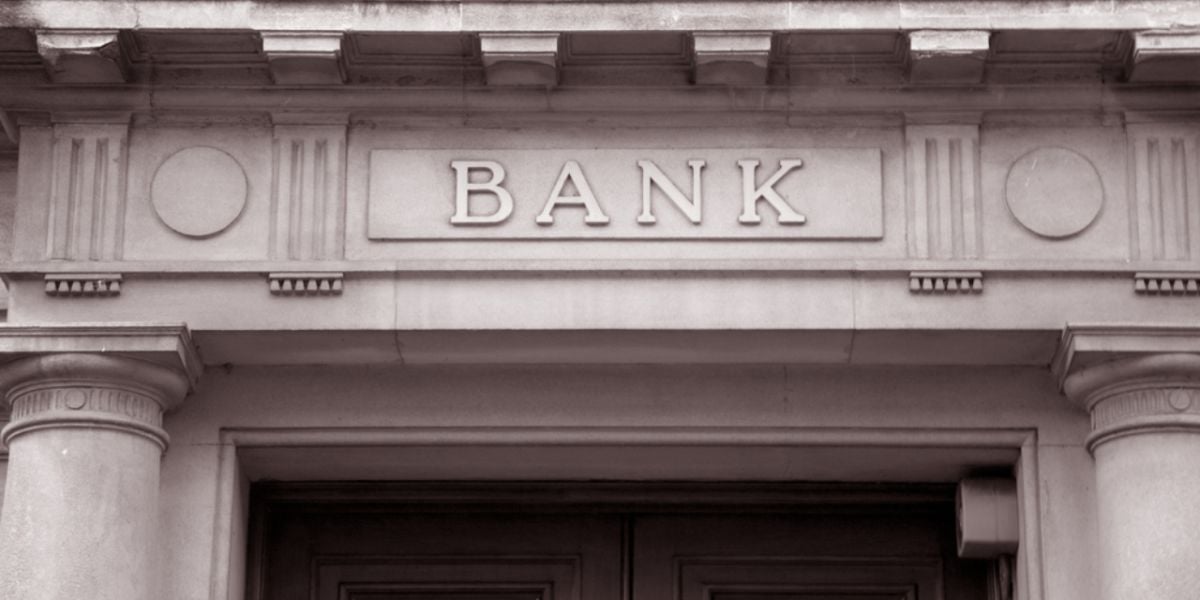
If you plan to live long-term in Belgium, it will be preferable to open a bank account. Not only will you need a bank account to deposit your paychecks, but it will also be very practical for saving money in anticipation of big purchases and certain emergencies.
Having a bank account in Belgium can also help you avoid transaction fees and exchange rates that will inevitably hit if you stick solely to your foreign bank account. On the other hand, it will be easier to manage your bills since you can easily set up direct debits. If you wish to buy a house in Belgium (now or in the near future), a Belgian bank account will definitely be an asset for obtaining a mortgage.
You should also know that Belgium is a relatively "cashless" society, meaning without cash, and has been for years. Thus, having a local bank to keep your money while holding a credit and/or debit card will be a much more efficient option for conducting your daily transactions.
The banking system in Belgium
The process of opening a bank account in Belgium is quite straightforward. You only need a form of identification and a legal postal address.
Opening and managing a bank account in Belgium generally poses no problems:
- Belgian banks have French-speaking staff, which simplifies the process.
- You don't need to go to the same bank where you opened your account to carry out transactions.
- And even if you can't open an account in your home country, it doesn't prevent you from doing so in Belgium.
Main banks in Belgium
There are over 100 banks in Belgium, so you won't lack choices. The most popular ones include ING, Belfius Banque & Assurances, Beobank, and BNP Paribas Fortis, among others.
If you're looking for banks specifically suited for expatriates, there are: Bank of America, Citibank Europe, HSBC, Santander, ABN AMRO, Rabobank, and Deutsche Bank.
The largest banks have at least one branch in each city. Most of the time, they are open from 9:00 AM to 4:00 PM or 4:30 PM, Monday to Friday. Some are open on Saturdays. In smaller towns, banks are generally closed at midday, between 1:00 PM and 2:00 PM.
ING
ING is a bank frequently used by expatriates. There are about 700 branches in Belgium, and their website is accessible in Dutch, French, and English.
Their basic current account is called the Green Account and will cost you €40 per year. Their premium account is called Lion Account, and several savings account options are available. So make sure to inquire if you are interested.
Belfius Banque & Assurances
There are 590 local branches and over 2,000 specialists working for Belfius Banque & Assurances. They also offer 2,400 ATMs in Belgium. Their website is in Dutch and French.
Their basic account is called Beats Pulse, and it is free. There are two tiers above it: Beats New and Beats Star. There is only one option for savings accounts.
Beobank
Formerly Citibank Belgium, Beobank has nearly 190 branches across the country. Its site is in French and Dutch.
Beobank offers four types of accounts: Go, Jongeren (Youth), Plus, and Basic. Those looking for savings account options will be satisfied with Beobank. They offer a choice between four different types of accounts.
BNP Paribas Fortis
With more than 700 branches and 3,700 ATMs, BNP Paribas Fortis is Belgium's leading bank. It offers a website in French, Dutch, English, and German.
If you or a family member is under 18, you can take advantage of the bank's free Welcome Pack. Otherwise, choose between the Comfort Pack (three accounts in total) or the Premium Pack (waive monthly fees if conditions are met).
KBC
If you are looking for a fully automated bank, KBC might be what you need. It offers 66 self-service branches, ideal for independent clients.
This bank's website is accessible in Dutch, French, German, and English.
As with all other banks, you will have two options for bank accounts. The Basic account is free, and the Plus account costs only €2 per month. For those aged 24 and under, it is possible to obtain a free youth account.
Different types of bank accounts in Belgium
Generally, in Belgium, you can open a current account (zichtrekening in Dutch) and a savings account (spaarrekening). Some banks also offer packaged accounts and offshore accounts. Of course, there are many nuances depending on the type of bank account and the bank (interest rates, payment limits, overdraft).
Here are some basic details about each type of bank account, but it will always be preferable to discuss it with your bank advisor.
The current account
You can subscribe to two types of current accounts in Belgium: basic or premium.
A basic account will not incur monthly fees, you can use basic banking features online and in branch, but the range of transactions will be very limited. And, although there are no monthly fees, you will be charged for simple transactions. With a basic current account, you also won't be eligible for credit cards you might need for certain transactions, such as buying items online or booking hotels and flights.
For this reason, it will be preferable to get a premium current account. There will be monthly fees, but they are worth paying if you plan to use your bank account often. On the other hand, you will not be charged for ATM withdrawals. And with a bit of luck, the bank you choose will allow you to add another account holder to your account and make transfers in other currencies, which is very convenient for expatriates. In some cases, you might even find banks that will give you access to additional credit for a small fee.
Savings account
If you plan to save over time, it's better to consider opening a savings account in Belgium, in addition to your current account. Many banks tailor their savings accounts to help you achieve certain goals, such as buying a house or a car.
However, there are certain conditions related to savings accounts. For example, while some banks will allow you to withdraw your money whenever you want, there are others that will not let you touch that money for a certain number of years. The first is called an instant access account, while the second is called a fixed deposit account. Make sure to read the terms thoroughly to determine what suits your personal situation best.
Bank package
Some banks offer bank packages that bundle several services: current account, savings, credit card, insurance, and even digital benefits (advanced banking app, cashback). These packages are generally more expensive than standard accounts, but can be advantageous if you use multiple financial products daily.
Offshore account
If you frequently move from one country to another, having an offshore account can be beneficial. You can hold multiple currencies in your account, but not only that. You will also benefit from special features that you don't have with other accounts, such as locking in currency prices for a certain period. You might even benefit from tax reductions on your account holdings.
How to open a bank account in Belgium
The following documents are necessary for opening a bank account in Belgium:
- A proof of address with a legal address (electricity or water bills, for example);
- The bank account opening form duly completed and signed;
- Identity documents;
- Sometimes a proof of income (for obtaining a credit card).
Good to know:
You can pre-open the bank account before moving to Belgium (some banks offer this service).
Many banks allow opening a 100% online account, even for non-residents.
There is no initial deposit requirement, except for certain specific products.
Digital banks (like N26 or Aion) are now very popular in Belgium.
How to open a bank account before moving to Belgium
While some banks require you to be a Belgian resident to open a bank account, more and more banking institutions are becoming accommodating for expatriates.
It is becoming relatively easy to open a bank account, even if you are not yet settled in the country.
Simply visit the bank's website. You can then register, open an account, and make an appointment to present your identification and legal address once you are in Belgium. You can also open a bank account online when you are already in Belgium.
If you are fortunate enough to have international banks in your home country, you can also visit a branch in your area to have an account before moving.
How to open a bank account in person in Belgium
Opening a bank account in person is just as simple. Many banks accept walk-in visits, but to avoid long wait times, we suggest making an appointment before you go.
On-site, you will be greeted by an advisor (French-speaking in most branches). They will explain the different offers and help you open the account that suits your needs.
Payment methods in Belgium
Checks are now practically obsolete and very rarely accepted, even in public institutions. High fees apply if you still use one. Credit and debit cards are more widely used in Belgium.
Debit cards are widely used in Belgium. They allow you to make payments as long as the account is sufficiently funded. If the balance is insufficient, the payment is refused. Most cards today are compatible with the Bancontact system, often paired with Visa or Mastercard. The old Maestro and Cirrus cards are disappearing and are no longer issued by several banks.
Credit cards are only available under certain conditions. We recommend asking for more information directly from your bank.
Using ATMs in Belgium
In Belgium, you can use your debit card at any ATM, regardless of your bank. However, with the gradual reduction of traditional counters, several major banks (ING, BNP Paribas Fortis, KBC, Belfius) have created a common network called Batopin. These new ATMs are spread across the territory and allow withdrawals for all customers, no matter their bank.
Most of the time, no additional fees apply for withdrawals at these standardized ATMs. However, some banks impose monthly limits on free withdrawals and may charge fees beyond a certain number of transactions. It is therefore recommended to check the conditions of your contract.
Avoid using independent ATMs (often located in shops or gas stations without a bank logo). Fees are generally higher there, especially for international or non-SEPA withdrawals.
Bank account management and fees in Belgium
Managing your online account is completely free. You can receive your bank statements printed once or twice a month by paying the monthly fees.
The annual bank fees vary depending on the offer chosen:
- Basic accounts: often free or less than €20 per year.
- Premium accounts or with bundled services: between €40 and €70 depending on the included benefits (insurance, additional cards, etc.).
Once your account is open, you will receive your banking credentials by mail or via the bank's secure app. This process generally takes less than a week.
International money transfers in Belgium
As an expatriate, you will probably need to transfer money in different currencies to other countries.
For transactions with countries in the SEPA zone (Single Euro Payments Area), they are generally free, or you will be charged at the same rate as for a local transfer. These transfers are also quite fast; they should only take a few days. If you travel to countries in the SEPA zone, you will also be able to use your debit card without any issues.
In most cases, international money transfers are cheaper with a bank than with a currency exchange office. However, it does not offer the lowest rates on the market. Many websites can compare rates for you. You can thus transfer your money with minimal fees. You should therefore try this option instead of using your bank for international money transfers.
Direct debits and standing orders in Belgium
The majority of Belgians pay their bills by direct debits. This is partly because checks are no longer used in the country. All you have to do is authorize a company to debit money from your account as needed, and you won't have to worry about anything else besides checking your statements.
You can also set up standing orders (bestendige opdracht in Dutch). They can be used for almost anything, from paying rent to building your savings.
We do our best to provide accurate and up to date information. However, if you have noticed any inaccuracies in this article, please let us know in the comments section below.











